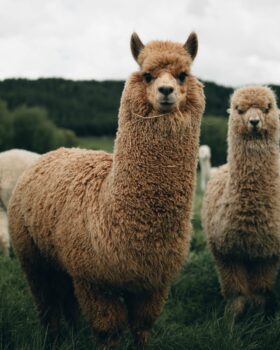With the beginning of respiratory syncytial virus (RSV) season, there is no better time to bring awareness to the efforts going into therapeutic research on behalf of high-risk patients across the globe.
One group of researchers taking on the enormous challenge of therapeutic innovation is based in Cape Town, South Africa.
Afrobodies, a unique biotech company founded in 2016, produces quality custom antibodies, or nanobodies, with the ability to identify “hard to detect” substances with a wide array of clinical applications, including RSV, and extending to immunodiagnostics, immunotherapy, and agriculture.
Since their discovery over three decades ago, nanobodies have been viewed as small, robust, functional, single-domain antibodies. They are highly stable and hydrophilic and, therefore, have a high affinity with excellent tissue penetration.
Scientists advocate for their cost-effective expression system believing nanobodies have a broad application potential within the infectious disease sector and beyond. These include identification of disease markers within patient blood samples, testing for diseases in animals or for contaminants within a water supply, and for the presence of pesticides on fruit and vegetables prior to export.
 The custom antibodies produced by Afrobodies make an intended use of the unique properties of a Camelidae animal, the alpaca. The heavy chain domains of its antibodies are utilized to detect proteins, carbohydrate moieties, and chemical compounds. Their recombinant antibodies are modified for the addition of user-friendly tags for immunostaining, immunoprecipitation (IP), flow cytometry, western blot, in vivo imaging of animals and humans, and use on both biosensor chips for immunodiagnostics and within immunotherapy.
The custom antibodies produced by Afrobodies make an intended use of the unique properties of a Camelidae animal, the alpaca. The heavy chain domains of its antibodies are utilized to detect proteins, carbohydrate moieties, and chemical compounds. Their recombinant antibodies are modified for the addition of user-friendly tags for immunostaining, immunoprecipitation (IP), flow cytometry, western blot, in vivo imaging of animals and humans, and use on both biosensor chips for immunodiagnostics and within immunotherapy.
How does Afrobodies make their antibodies?
First the alpacas are vaccinated over 12-16 weeks to provoke a particular immune response. This will ensure an antibody is created that will bind to a specific substance. The alpaca’s blood is then drawn and the antibody-producing cells are isolated. Afrobodies is then able to clone the mRNA sequence for the antigen-binding fragment of the heavy chain only antibodies. Nanobody libraries, which are created from the cloned sequences, are organized to access the desired antibodies. When a desired antibody is identified, they multiply the antibody in the lab using bacteria. These patented antibody sequences are supplied in special vials and prepared for distribution within a test kit. The entire process is completed within 7 months.
Where Afrobodies hits the mark is in their quality, personalized customer service, and validated antibody supply available for export to both Europe and North America.
The dedication of the cofounders of Afrobodies, Benedicta Mahlangu and Peter Durcan, Ph.D., is backed by their experience. Benedicta, a chemical engineer and the company’s CEO, worked within the energy and maritime space studying and conducting research that stemmed from oil and gas exploration. Peter Durcan, CSO, is a cellular and molecular biologist with an intense knowledge regarding the mechanisms regulating mammalian somatic cell fusion. His post-doctoral work became the foundation for his intent to secure a superior methodology producing recombinant antibodies.
Positioned to make a significant impact
As Benedicta pointed out, the African continent is home to a large number of communicable diseases with no cure, and these include but are not limited to malaria, human immunodeficiency virus (HIV), and hepatitis. As millions of individuals are affected each year, viral outbreaks including the most recent Covid-19 infection set a new precedence for new diagnostic and treatment strategies.
In fact, in 2020, Afrobodies gained recognition when their antibodies were amongst the first in the world to undergo laboratory testing against the South African-originated SARS-CoV-2 variant 501Y.V2, or SA variant. Their scientists specifically target the Spike 1 protein on the virus inhibiting its contact with human cells, thereby limiting infection spread. With the support of their academic partners in the United Kingdom and South Africa, Afrobodies is continuing to make strides in their efforts to explore antibody neutralization as potential therapy for Covid-19. Given their size and hydrophilic nature, their antibodies are projected to be available via inhaler for direct pulmonary access.
As the fall vaccination schedule once again rolls out across the globe, Afrobodies Covid-19 antibodies project continues to make advances in the field of communicable diseases. The future of Afrobodies lies in their desire for collaboration as well as increasing the number of potential targets to which they intend to funnel their diagnostic application.
- SEO Powered Content & PR Distribution. Get Amplified Today.
- PlatoData.Network Vertical Generative Ai. Empower Yourself. Access Here.
- PlatoAiStream. Web3 Intelligence. Knowledge Amplified. Access Here.
- PlatoESG. Carbon, CleanTech, Energy, Environment, Solar, Waste Management. Access Here.
- PlatoHealth. Biotech and Clinical Trials Intelligence. Access Here.
- Source: https://bio.news/latest-news/afrobodies-south-africa-rsv-vaccination-vaccines-antibodies-alpaca-covid/



